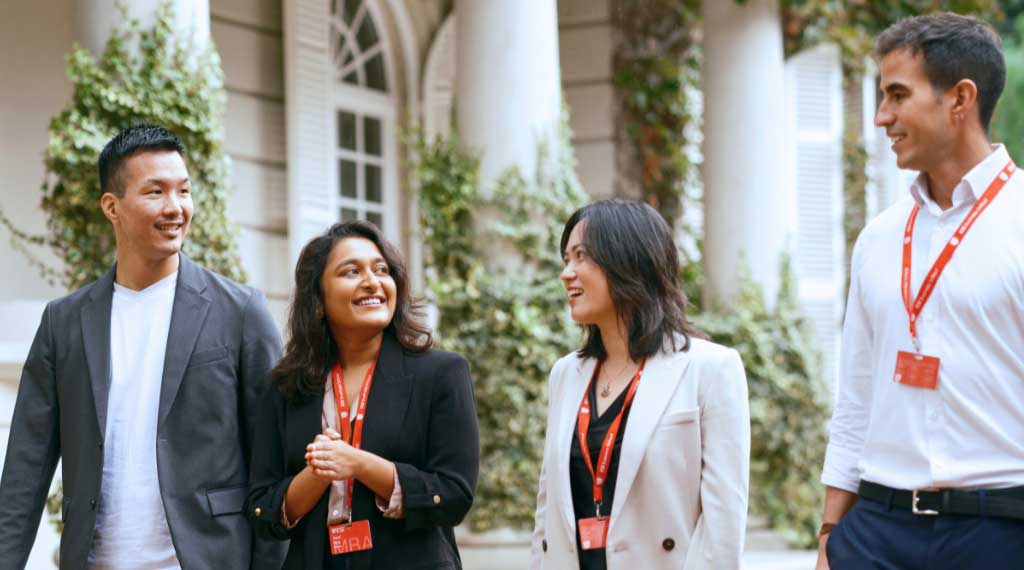Stories
Going East: What Asia’s century will mean for everyone else
Ex-HSBC chief Stephen Green, on visit to IESE, discusses China's rise
April 4, 2019

China’s continued ascent this century is provoking a global rebalancing of geopolitical scales that could prove especially disorienting for Europe.
Stephen Green, the former CEO and chairman of HSBC, spoke to MBA students on the Barcelona campus about the implications and challenges of “Asia’s century.” His central message was that economic and, arguably, cultural power is shifting east in what is a reemergence of historical world powers surpassed about 500 years ago by Europe, “an artificial human construct” that was then poor relative to China, Japan and India.
Green spoke at the latest edition of the Global Leadership Series alongside Professor Nuria Mas. While focusing on Asia, his conversation also touched on the geopolitical turbulence rocking France, Syria, Russia, the United States and Green’s native U.K. Green made a convincing case that the physical and virtual connectivity that now binds us all together, “for good and for ill,” also sows unique tensions.
The return to economic prominence of China and other eastern countries is no longer a story of cheap labor. “China now has perhaps the leading global competence in several areas, notably 5G technology,” Green said. “There is no reason to believe this won’t spread across other sectors.” He said that traditional Western powers have long operated under the assumption that they “will always find higher ground to retreat to as the flood of Asian competition continues to rise.”
Green “wouldn’t bet on that.”
He instead foresees China becoming “an effective challenger to Europe in essentially every domain of economic activity.” He’s also confident that its Belt and Road Initiative, a mammoth development strategy with “very few precedents in modern history,” will play an enormous role in remaking the face of Eurasia.
Europe’s Fragmentation Is China’s Gain
The ongoing eastward shift will be pushed along by the current fragmentation of Europe, with Green’s “country about to make [the E.U.] weaker” and the power triangle of the U.K., France and Germany being replaced by a French-German axis.
How this realignment fares across the continent is unclear, and will hinge on Emmanuel Macron’s effectiveness in France. Yet Green conceded that he finds it “difficult to be easily optimistic about Europe’s ability to position itself on the world stage given the rise of China and India and continuing relevance of America.”
China and America, Green said, are both well aware of the E.U.’s splintering and game to take advantage of it. With Europe no longer the sort of fault line it was during the Cold War, America’s strategic interest in the continent has of course evolved.
And what of the political reality unfolding in the U.S.? Will China in its bid for superpower primacy be able to take advantage of Trump-era upheaval?
While the U.S. president has added an element of unpredictability, “One should never short America for very long. And the Chinese understand this fully.”
Still, the most convulsive geopolitical political moment since World War II has the potential to defy expectations and dogma. Green noted the Korean peninsula, shipping lanes surrounding China and the China-dependent water supply of Southeast Asia as flash points that could radically unsettle the world order further still. There are also the complex geopolitics of Asia that, Green said, are “rising and will continue to rise,” thanks partly to the BRI, which has left India anxious.
Perhaps the safest bet is on China, despite the current slowing of its growth.
“Too many assume there will be a hard landing in China,” Green said. “I don’t.”


